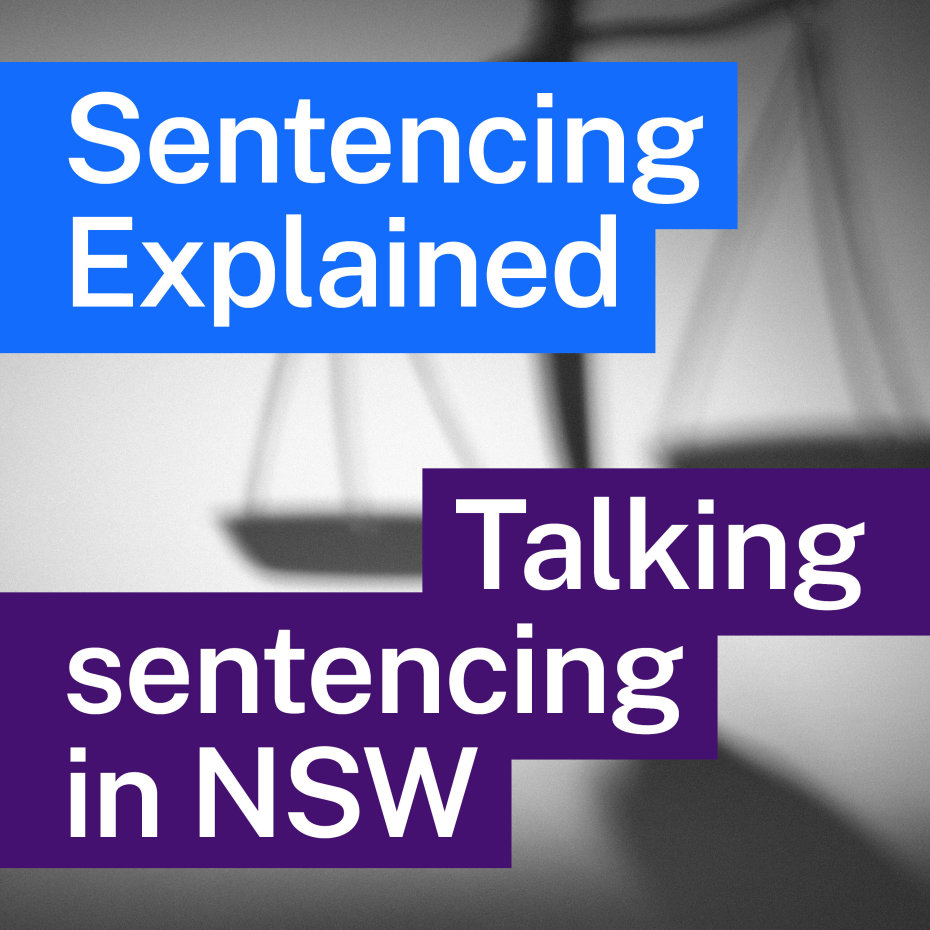
Browse
Sentencing Explained
Sentencing Explained
Sentencing Explained is a podcast about NSW sentencing trends and practices. Join Chair of the NSW Sentencing Council, the Hon Peter McClellan AM KC, in conversation with esteemed guests including judges, police, public interest lawyers, pr
More
Season 1
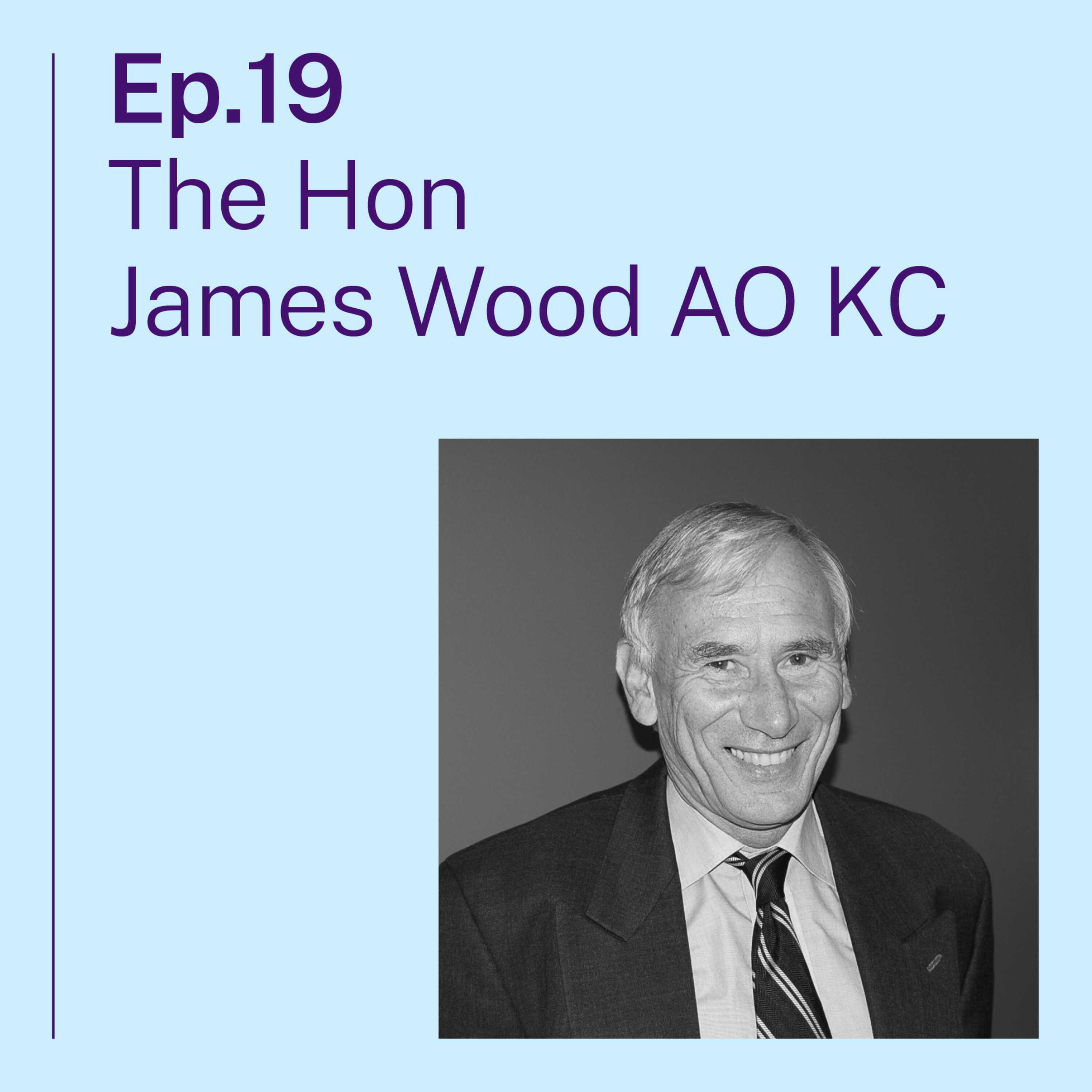
An insight into parole with the Hon James Wood AO KC
Parole is an important part of our criminal justice system. It provides offenders with a path to rehabilitation as they transition from the prison system back into the community. But how does parole work? In this episode, Peter is joined by the Honourable James Wood AO KC. Mr Wood has had a long career in the law, including as the former Chair of the State Parole Authority. They discuss how parole decisions are made, what happens when an offender breaches a parole condition and whether parole actually does reduce re-offending.See omnystudio.com/listener for privacy information.
An insight into parole with the Hon James Wood AO KC
Parole is an important part of our criminal justice system. It provides offenders with a path to rehabilitation as they transition from the prison system back into the community. But how does parole work? In this episode, Peter is joined by the Honourable James Wood AO KC. Mr Wood has had a long career in the law, including as the former Chair of the State Parole Authority. They discuss how parole decisions are made, what happens when an offender breaches a parole condition and whether parole actually does reduce re-offending.See omnystudio.com/listener for privacy information.
40:24
EP19 - S1
21 May 23
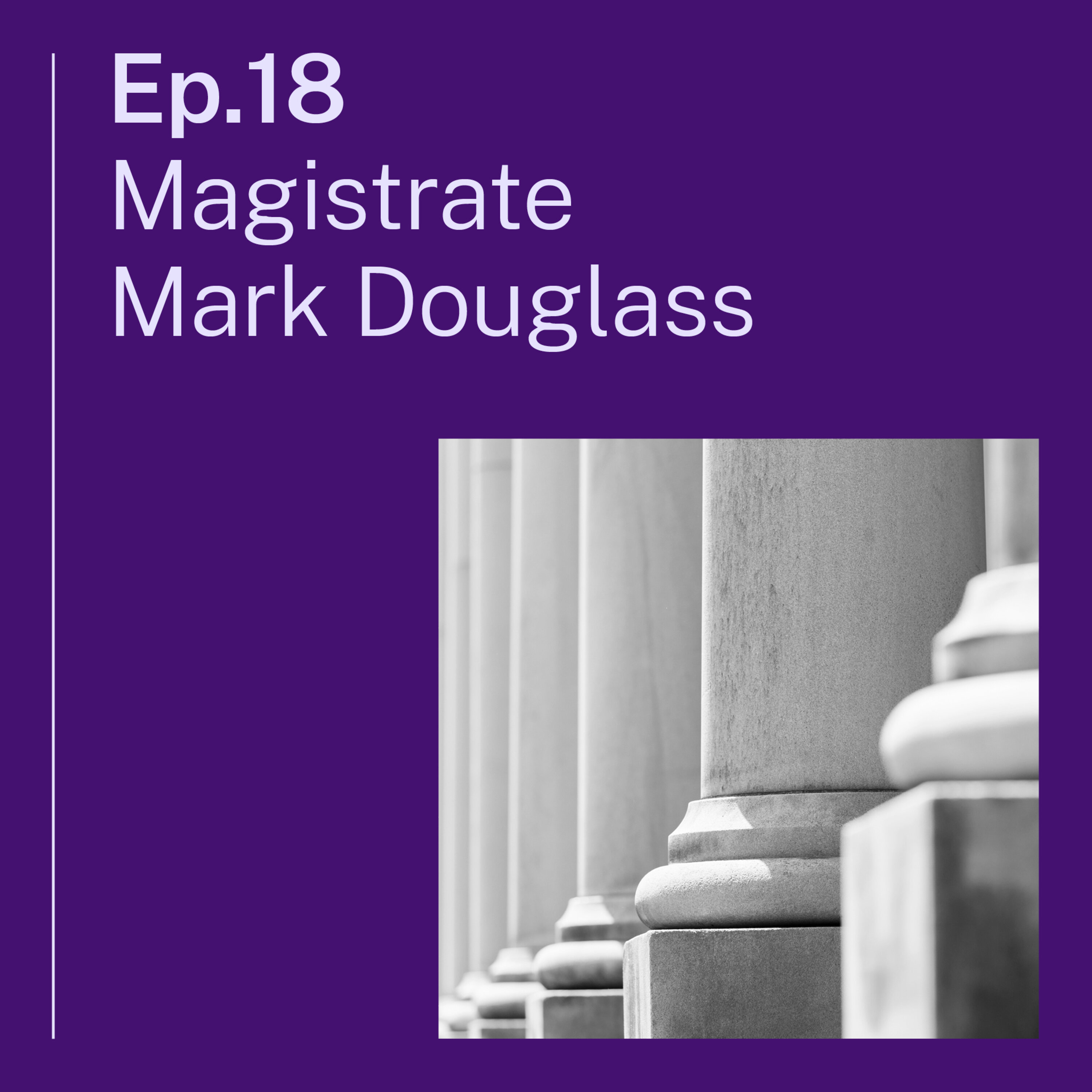
Aboriginal people and the criminal justice system with Magistrate Douglass
In this episode, we are joined by Magistrate Mark Douglass to talk about his experiences as an Aboriginal magistrate and his perspective on Aboriginal people and the criminal justice system. Magistrate Douglass discusses how he overcame early life challenges to reach his current position. He shares his hope that the criminal justice system is changing, including through the expansion of culturally-specific processes and his work as Chair of the Local Court’s First Nations Committee. Please note this episode contains content that some listeners may find distressing, including mentions of domestic violence, sexual assault and suicide. If you want to avoid this content, skip from 1:41 to 3:07 and from 22:35 to 23:36. If you need support, you can contact these services free of charge: Beyond Blue: call support services on 1300 22 4636 or visit www.beyondblue.org.au Lifeline: call the 24-hour crisis line on 13 11 14 or visit lifeline.org.au FullStop Australia: call 1800 424 017 or visit www.fullstop.org.au National Sexual Assault, Family and Domestic Violence Counselling Service: call 1800RESPECT or 1800 737 732,or visit www.1800respect.org.au See omnystudio.com/listener for privacy information.
Aboriginal people and the criminal justice system with Magistrate Douglass
In this episode, we are joined by Magistrate Mark Douglass to talk about his experiences as an Aboriginal magistrate and his perspective on Aboriginal people and the criminal justice system. Magistrate Douglass discusses how he overcame early life challenges to reach his current position. He shares his hope that the criminal justice system is changing, including through the expansion of culturally-specific processes and his work as Chair of the Local Court’s First Nations Committee. Please note this episode contains content that some listeners may find distressing, including mentions of domestic violence, sexual assault and suicide. If you want to avoid this content, skip from 1:41 to 3:07 and from 22:35 to 23:36. If you need support, you can contact these services free of charge: Beyond Blue: call support services on 1300 22 4636 or visit www.beyondblue.org.au Lifeline: call the 24-hour crisis line on 13 11 14 or visit lifeline.org.au FullStop Australia: call 1800 424 017 or visit www.fullstop.org.au National Sexual Assault, Family and Domestic Violence Counselling Service: call 1800RESPECT or 1800 737 732,or visit www.1800respect.org.au See omnystudio.com/listener for privacy information.
38:56
EP18 - S1
30 Apr 23
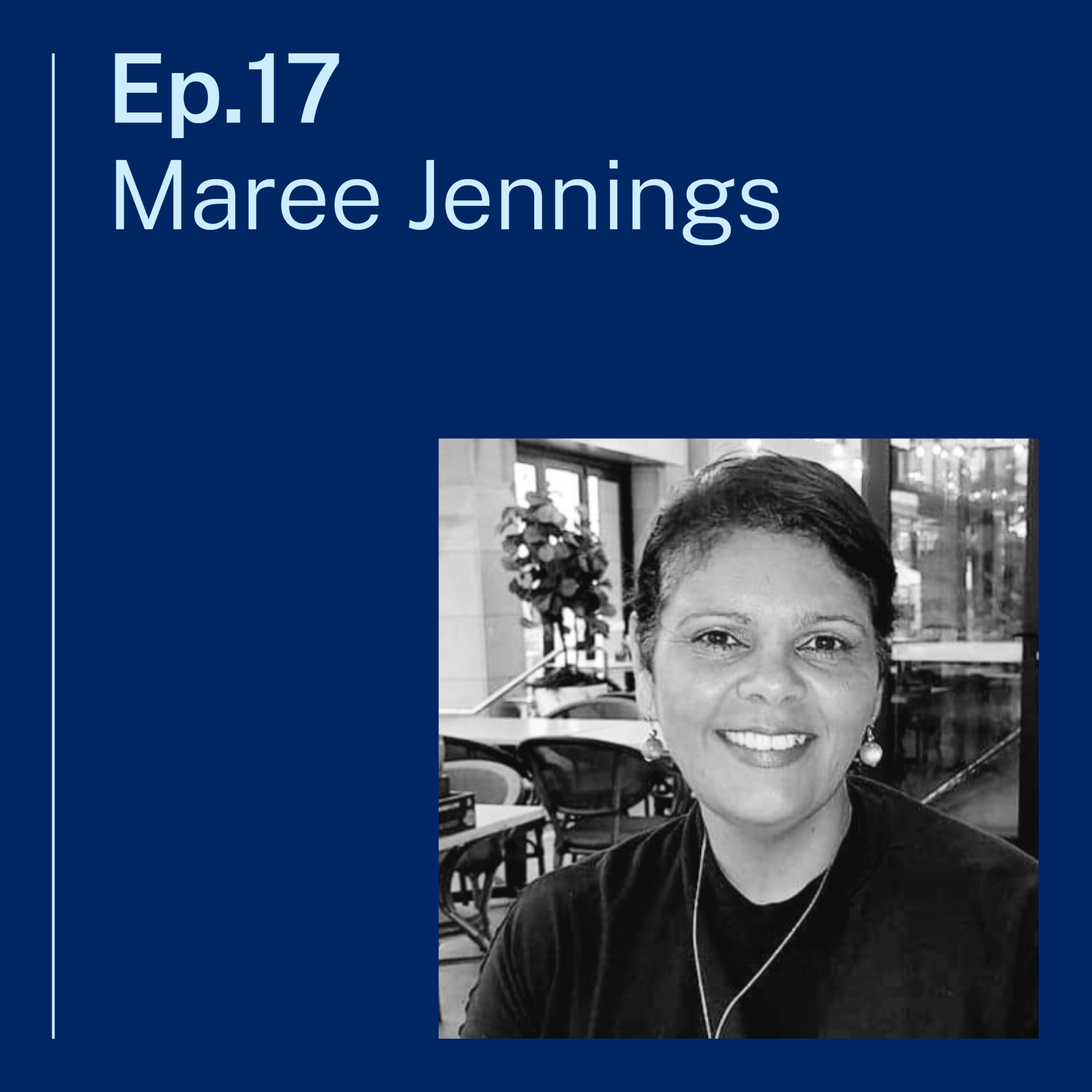
Circle Sentencing with Maree Jennings
In this episode we are joined by Darumbal and Gunggari woman Maree Jennings to talk about the Circle Sentencing program. A former community panel member and Project Officer in Circle Sentencing, Maree now works on the operational side of the program with the Department of Communities and Justice. Listen in to hear about Maree’s experience sitting on Circles, how Circle Sentencing works and why she thinks the program is making a difference to Aboriginal people’s lives.See omnystudio.com/listener for privacy information.
Circle Sentencing with Maree Jennings
In this episode we are joined by Darumbal and Gunggari woman Maree Jennings to talk about the Circle Sentencing program. A former community panel member and Project Officer in Circle Sentencing, Maree now works on the operational side of the program with the Department of Communities and Justice. Listen in to hear about Maree’s experience sitting on Circles, how Circle Sentencing works and why she thinks the program is making a difference to Aboriginal people’s lives.See omnystudio.com/listener for privacy information.
31:53
EP17 - S1
3 Apr 23
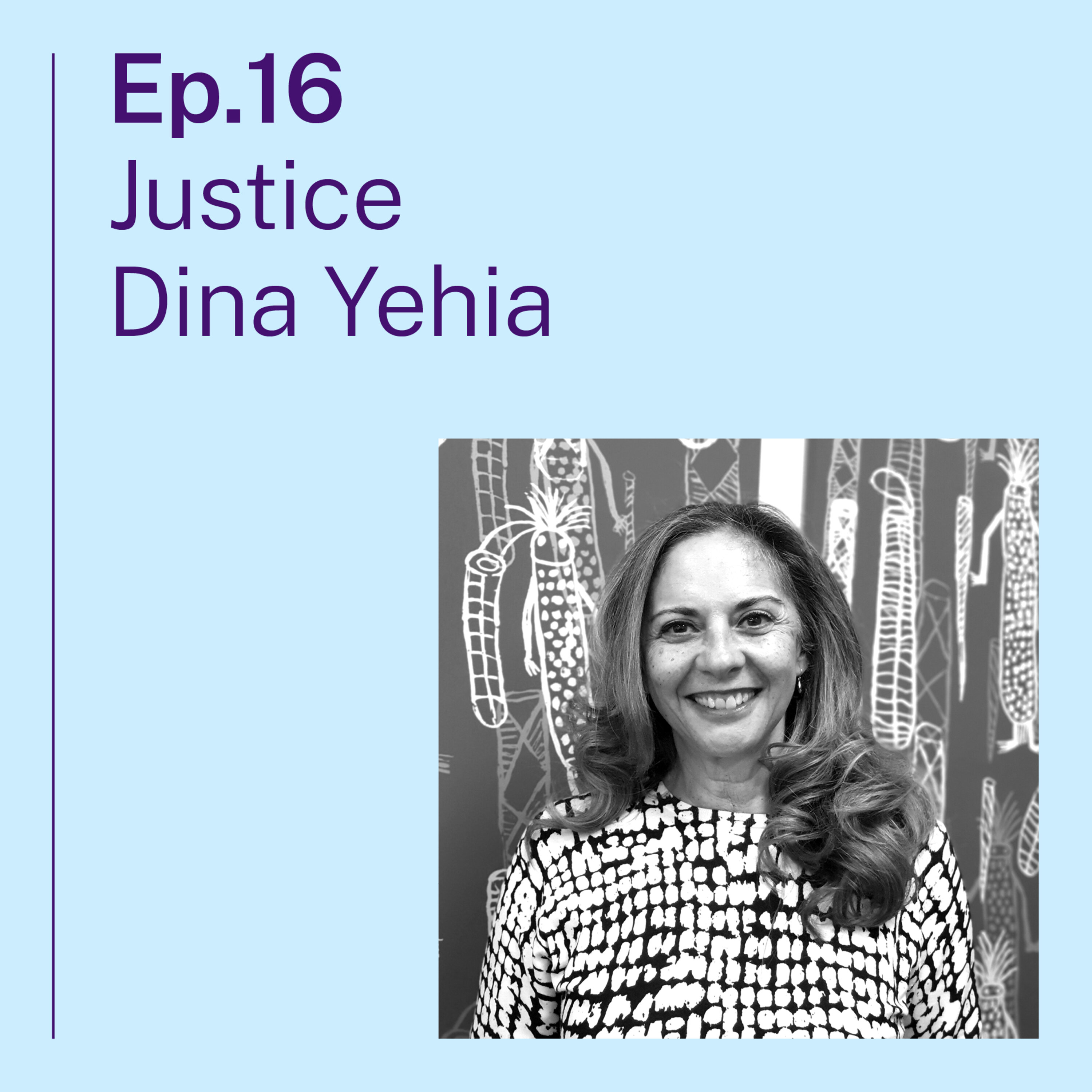
Sentencing Aboriginal offenders on the Walama List with Justice Dina Yehia
In this episode, we have the privilege of being joined by Justice Dina Yehia SC. Justice Yehia was recently appointed to the Supreme Court from the District Court, where she played a key role in setting up the Walama List. The Walama List is a sentencing procedure in the District Court for eligible Aboriginal and Torres Strait Islander offenders. Listen in to hear how the Walama List differs from the regular sentencing process and why Justice Yehia found the experience so rewarding.See omnystudio.com/listener for privacy information.
Sentencing Aboriginal offenders on the Walama List with Justice Dina Yehia
In this episode, we have the privilege of being joined by Justice Dina Yehia SC. Justice Yehia was recently appointed to the Supreme Court from the District Court, where she played a key role in setting up the Walama List. The Walama List is a sentencing procedure in the District Court for eligible Aboriginal and Torres Strait Islander offenders. Listen in to hear how the Walama List differs from the regular sentencing process and why Justice Yehia found the experience so rewarding.See omnystudio.com/listener for privacy information.
52:29
EP16 - S1
26 Mar 23
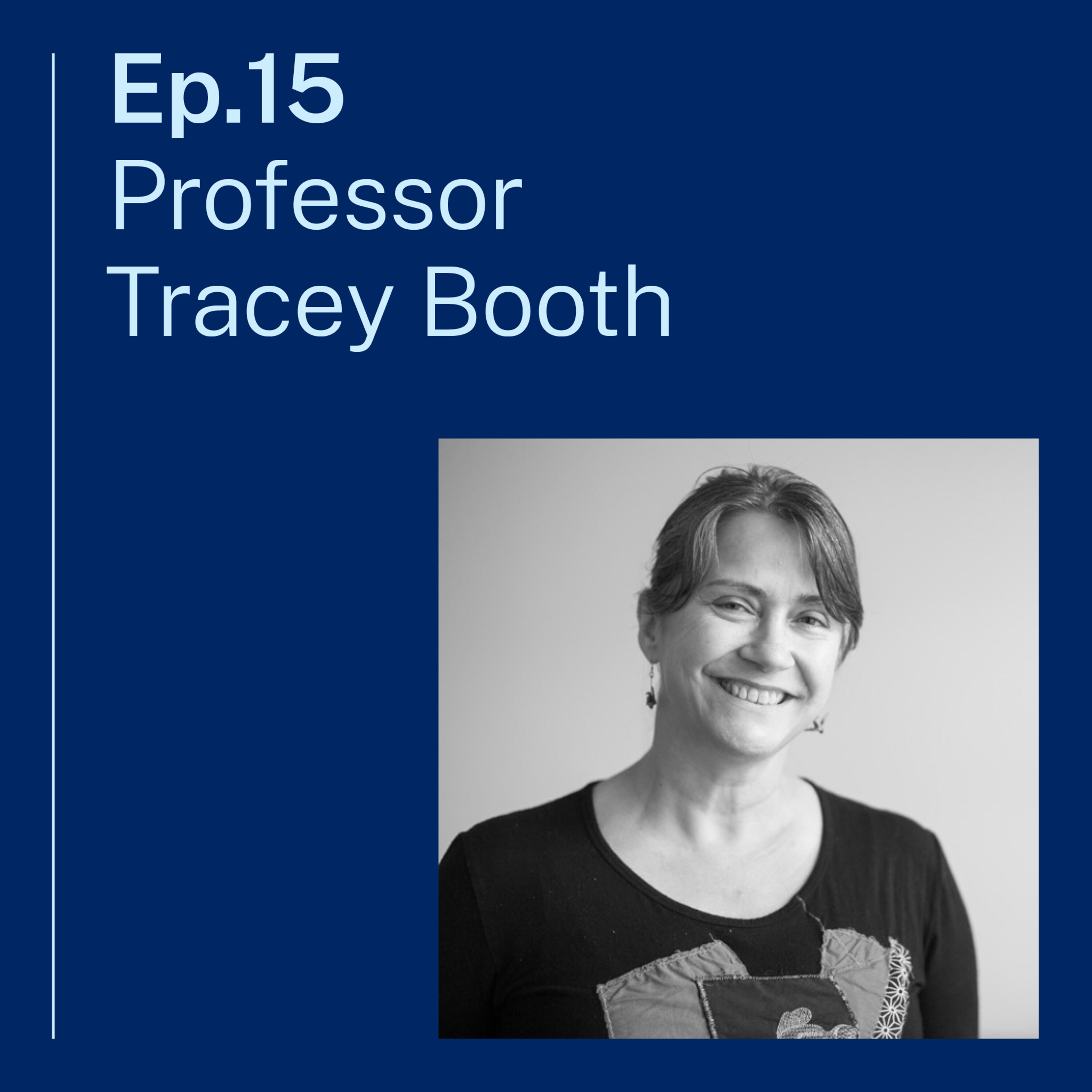
Exploring victims’ rights and experiences in sentencing with Professor Tracey Booth
Did you know that victims are not a party in criminal proceedings, but are actually witnesses? This week we are joined by Professor Tracey Booth, who is an expert in victim impact statements and victims’ role in sentencing. In this episode Professor Booth explains how the role of victims in the courtroom has changed over time, and talks about the importance of trauma-informed courts. Listen in to find out what rights victims have in sentencing, and how victim impact statements work.See omnystudio.com/listener for privacy information.
Exploring victims’ rights and experiences in sentencing with Professor Tracey Booth
Did you know that victims are not a party in criminal proceedings, but are actually witnesses? This week we are joined by Professor Tracey Booth, who is an expert in victim impact statements and victims’ role in sentencing. In this episode Professor Booth explains how the role of victims in the courtroom has changed over time, and talks about the importance of trauma-informed courts. Listen in to find out what rights victims have in sentencing, and how victim impact statements work.See omnystudio.com/listener for privacy information.
39:43
EP15 - S1
19 Mar 23
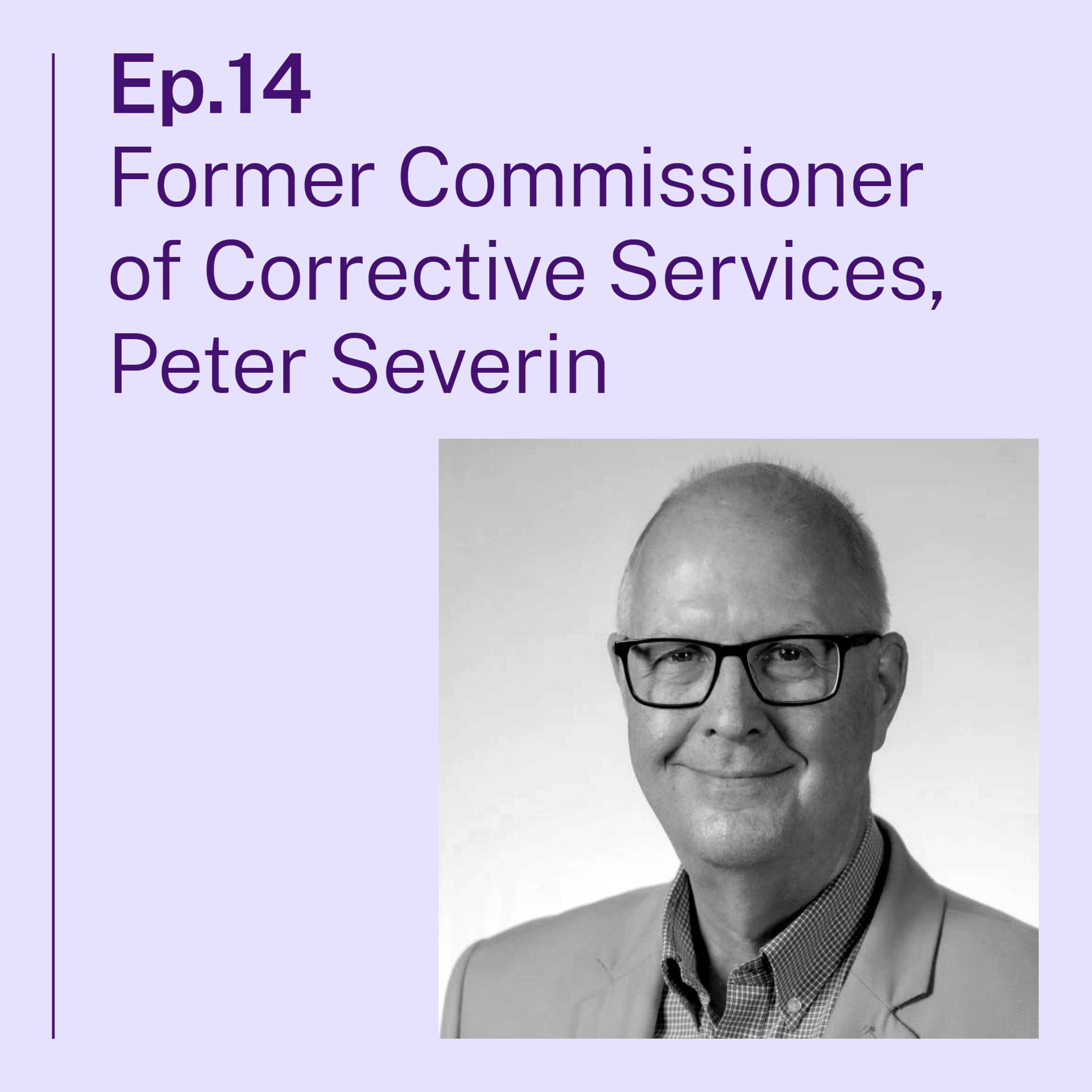
Prison and community corrections with retired Commissioner of Corrective Services Peter Severin
What happens when someone is sentenced to prison? What education programs are available to prisoners? What does the day-to-day life of a prisoner look like? In this episode of Sentencing Explained, we sit down with retired Commissioner of Corrective Services and current Sentencing Council member Peter Severin. Listen in to find out what happens after someone is sentenced to prison – from when they leave the courtroom to their release back into the community. Former Commissioner Severin also takes us through the prison classification system and discusses how the system responds to prisoner issues and needs.See omnystudio.com/listener for privacy information.
Prison and community corrections with retired Commissioner of Corrective Services Peter Severin
What happens when someone is sentenced to prison? What education programs are available to prisoners? What does the day-to-day life of a prisoner look like? In this episode of Sentencing Explained, we sit down with retired Commissioner of Corrective Services and current Sentencing Council member Peter Severin. Listen in to find out what happens after someone is sentenced to prison – from when they leave the courtroom to their release back into the community. Former Commissioner Severin also takes us through the prison classification system and discusses how the system responds to prisoner issues and needs.See omnystudio.com/listener for privacy information.
56:44
EP14 - S1
12 Mar 23
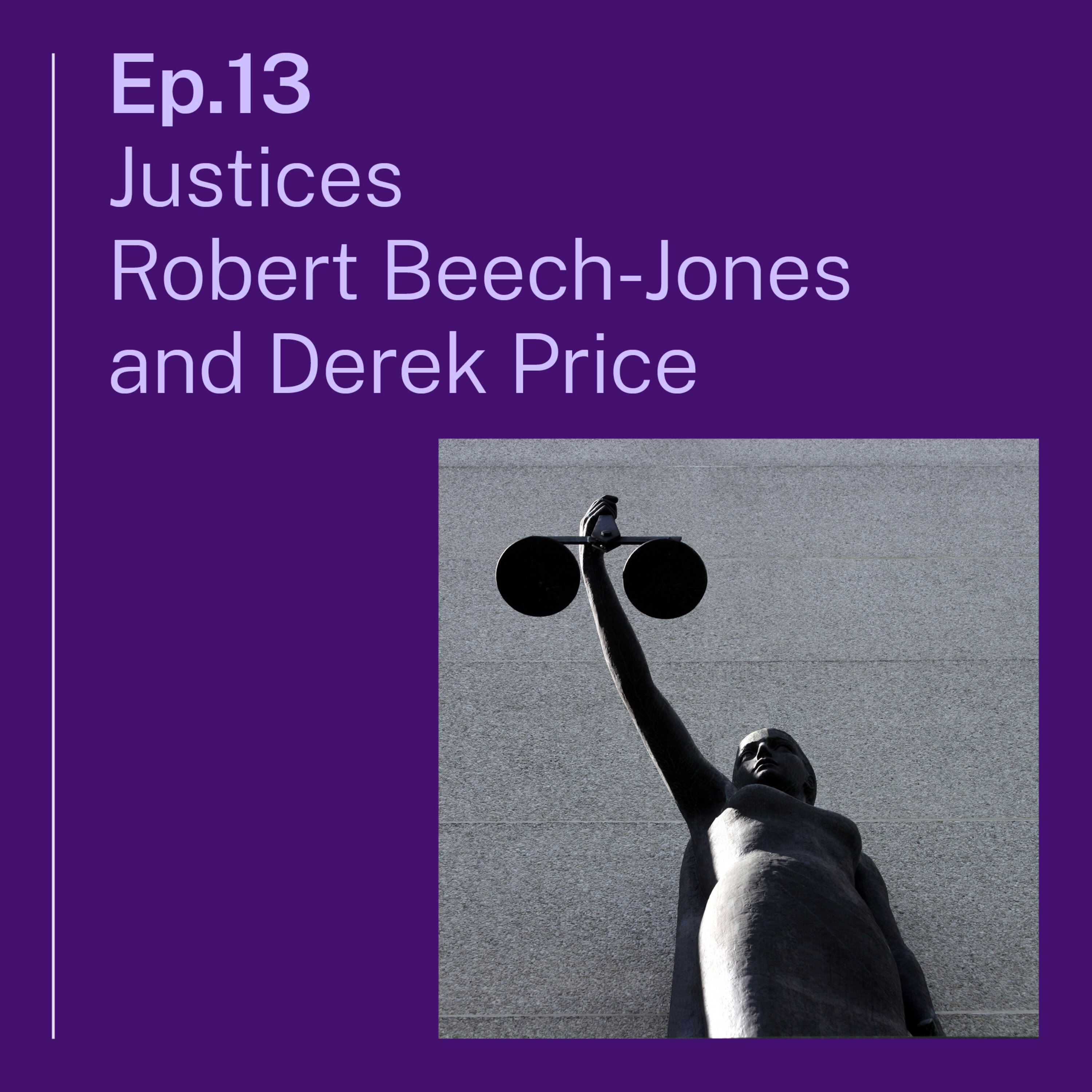
Spotlight on the appeals process with Justices Robert Beech-Jones and Derek Price
What happens when someone appeals their sentence? In this episode we are joined by Justice Robert Beech-Jones, Chief Judge at Common Law in the Supreme Court, and Justice Derek Price, Chief Judge of the District Court, to find out. Our guests talk about when a decision can be appealed, the different types of appeals and the options available to courts when considering an appeal.See omnystudio.com/listener for privacy information.
Spotlight on the appeals process with Justices Robert Beech-Jones and Derek Price
What happens when someone appeals their sentence? In this episode we are joined by Justice Robert Beech-Jones, Chief Judge at Common Law in the Supreme Court, and Justice Derek Price, Chief Judge of the District Court, to find out. Our guests talk about when a decision can be appealed, the different types of appeals and the options available to courts when considering an appeal.See omnystudio.com/listener for privacy information.
41:01
EP13 - S1
5 Mar 23
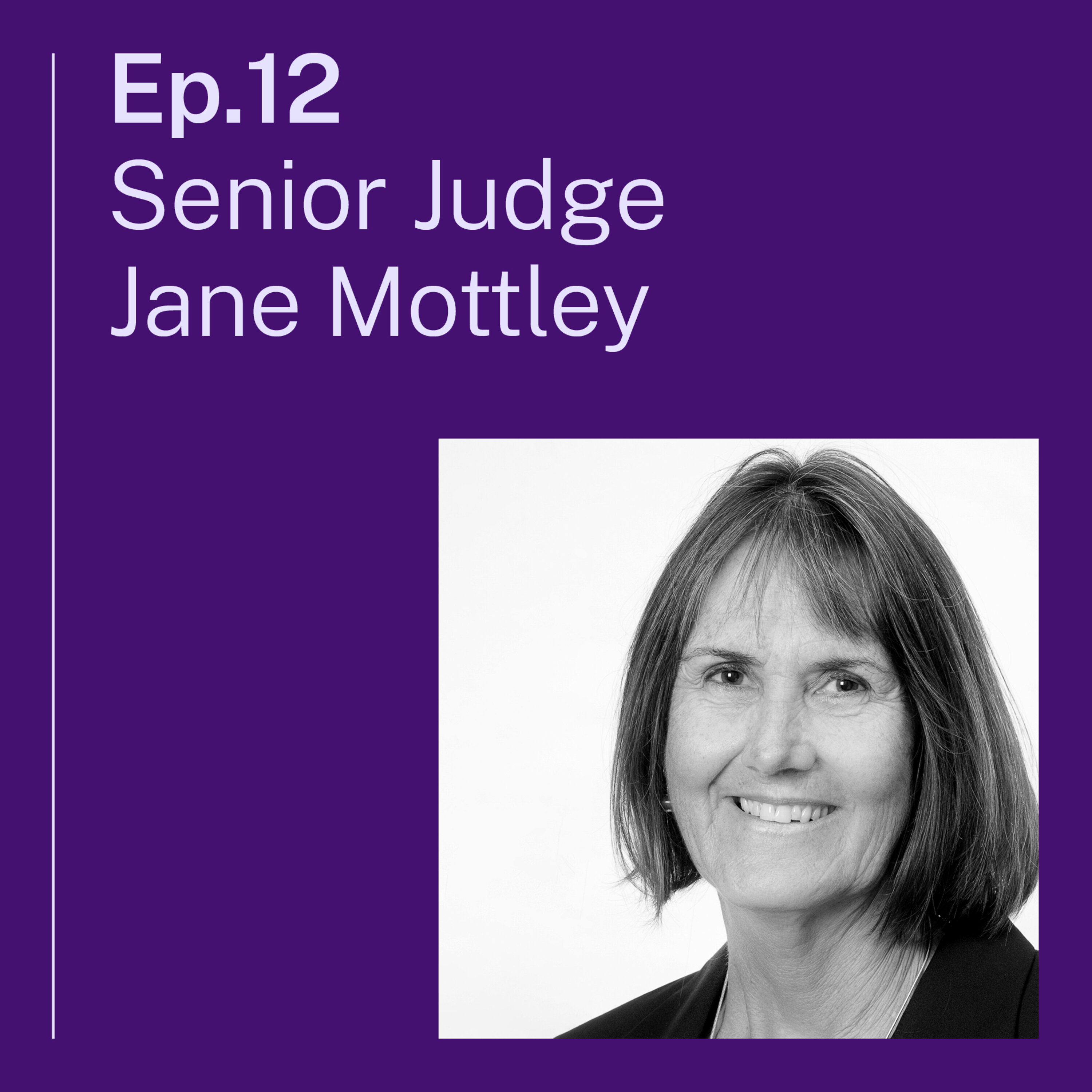
Delving into the Drug Court with Senior Judge Jane Mottley
Would it surprise you to learn the NSW Drug Court was established to steer drug-dependent offenders away from prison? As Senior Judge Jane Mottley explains, the program is no walk in the park for participants. But it gives them an invaluable opportunity to receive expert support for their drug dependency and take steps towards rehabilitation. Judge Mottley joins Peter in this episode of Sentencing Explained to discuss the Drug Court and the story behind its success.See omnystudio.com/listener for privacy information.
Delving into the Drug Court with Senior Judge Jane Mottley
Would it surprise you to learn the NSW Drug Court was established to steer drug-dependent offenders away from prison? As Senior Judge Jane Mottley explains, the program is no walk in the park for participants. But it gives them an invaluable opportunity to receive expert support for their drug dependency and take steps towards rehabilitation. Judge Mottley joins Peter in this episode of Sentencing Explained to discuss the Drug Court and the story behind its success.See omnystudio.com/listener for privacy information.
01:04:03
EP12 - S1
26 Feb 23
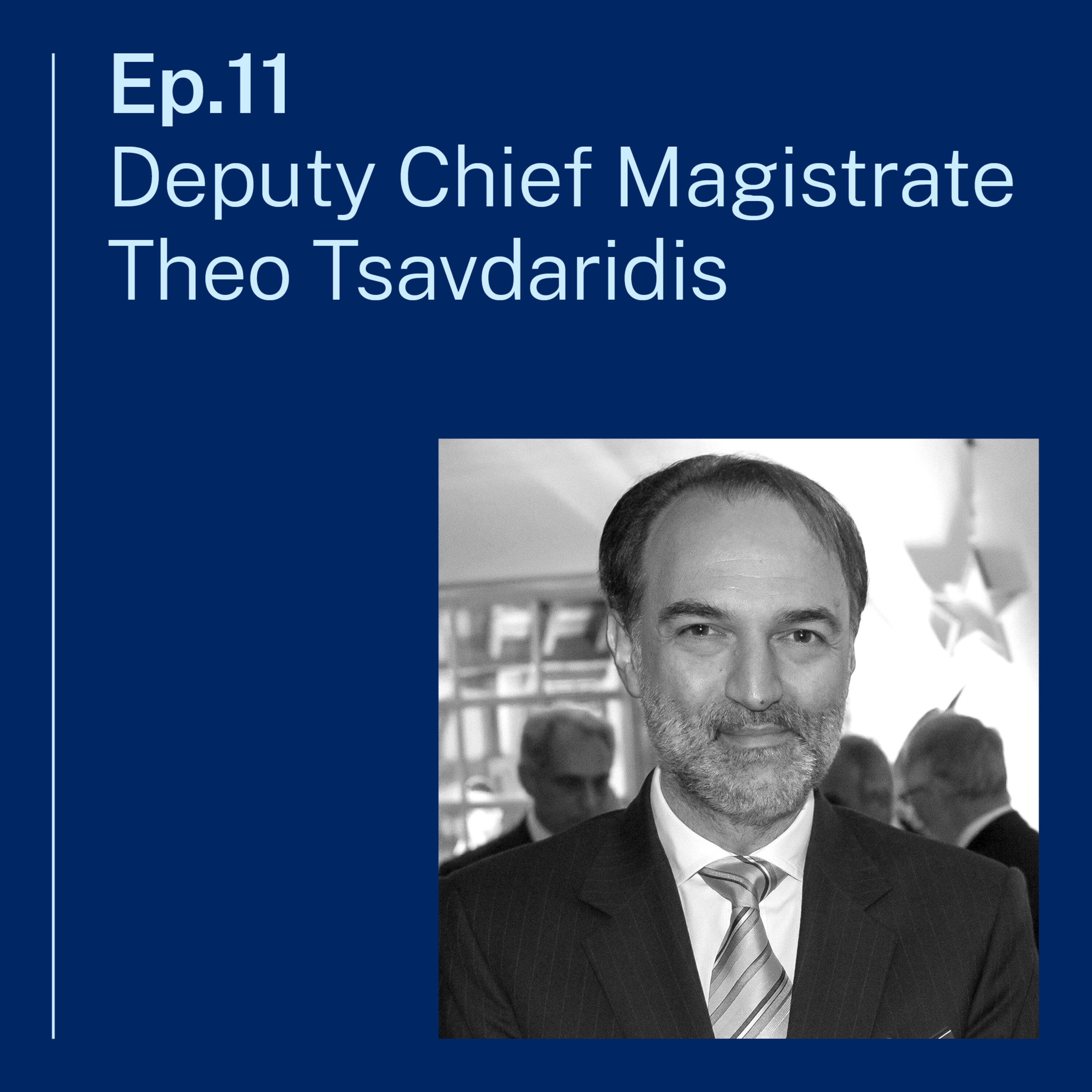
Sentencing in the Local Court with Deputy Chief Magistrate Theo Tsavdaridis
Did you know around 90 per cent of the state’s criminal matters begin and end in the Local Court? In this episode, Peter is joined by Deputy Chief Magistrate Theo Tsavdaridis to break down sentencing in the Local Court. They discuss sentencing options available to the Court, and unpack how the age, health and character of an offender can affect the final sentencing outcome. Listen in to learn more.See omnystudio.com/listener for privacy information.
Sentencing in the Local Court with Deputy Chief Magistrate Theo Tsavdaridis
Did you know around 90 per cent of the state’s criminal matters begin and end in the Local Court? In this episode, Peter is joined by Deputy Chief Magistrate Theo Tsavdaridis to break down sentencing in the Local Court. They discuss sentencing options available to the Court, and unpack how the age, health and character of an offender can affect the final sentencing outcome. Listen in to learn more.See omnystudio.com/listener for privacy information.
47:05
EP11 - S1
19 Feb 23
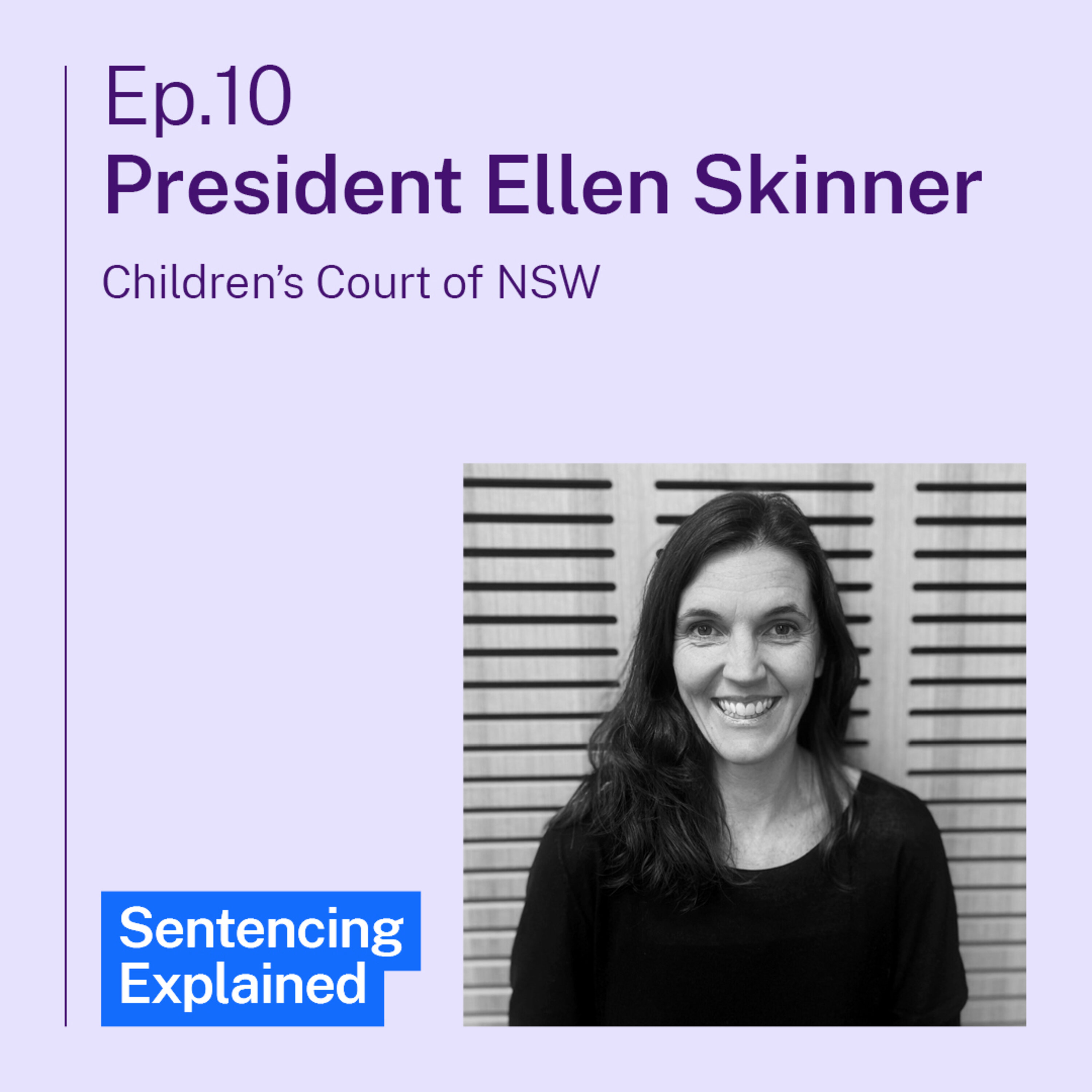
Youth justice and sentencing with Children’s Court President Ellen Skinner
When a young person breaks the law, there are different considerations at play. The President of the Children’s Court, Judge Ellen Skinner, aims to help young people who come before the Court to get back on the right track. Peter sits down with President Skinner in this episode to talk about options available to the Children’s Court to reduce reoffending and motivate good behaviour. They touch on youth justice conferences, unique sentencing options available for children and the Court’s approach to youth justice.See omnystudio.com/listener for privacy information.
Youth justice and sentencing with Children’s Court President Ellen Skinner
When a young person breaks the law, there are different considerations at play. The President of the Children’s Court, Judge Ellen Skinner, aims to help young people who come before the Court to get back on the right track. Peter sits down with President Skinner in this episode to talk about options available to the Children’s Court to reduce reoffending and motivate good behaviour. They touch on youth justice conferences, unique sentencing options available for children and the Court’s approach to youth justice.See omnystudio.com/listener for privacy information.
49:56
EP10 - S1
12 Feb 23
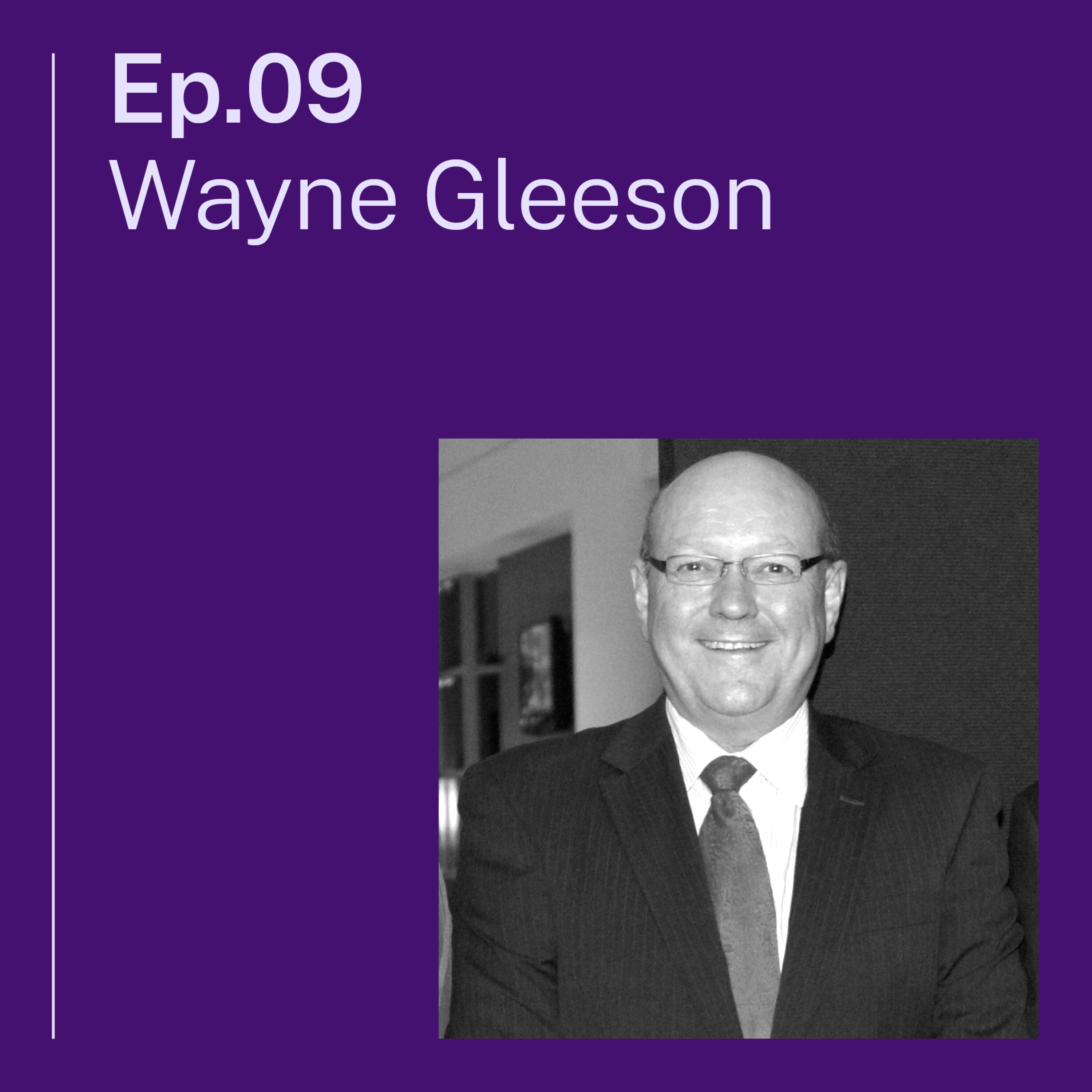
Talking sentencing law, education and society with Wayne Gleeson
An understanding of the legal system is fundamental to being an effective member of our community. Learning how the law works, its role in society, and how laws are made and changed, can be empowering for students. In this episode, Peter talks with Council member, retired Legal Studies teacher, and self-confessed “law junkie”, Wayne Gleeson. They explore the important work of the Council, including its Council’s involvement in recent sentencing reforms for fire offences and assaults on emergency services workers. They also discuss the significant role Wayne played in developing the Legal Studies syllabus, and how students “grow” when they study this course.See omnystudio.com/listener for privacy information.
Talking sentencing law, education and society with Wayne Gleeson
An understanding of the legal system is fundamental to being an effective member of our community. Learning how the law works, its role in society, and how laws are made and changed, can be empowering for students. In this episode, Peter talks with Council member, retired Legal Studies teacher, and self-confessed “law junkie”, Wayne Gleeson. They explore the important work of the Council, including its Council’s involvement in recent sentencing reforms for fire offences and assaults on emergency services workers. They also discuss the significant role Wayne played in developing the Legal Studies syllabus, and how students “grow” when they study this course.See omnystudio.com/listener for privacy information.
31:09
EP09 - S1
5 Feb 23
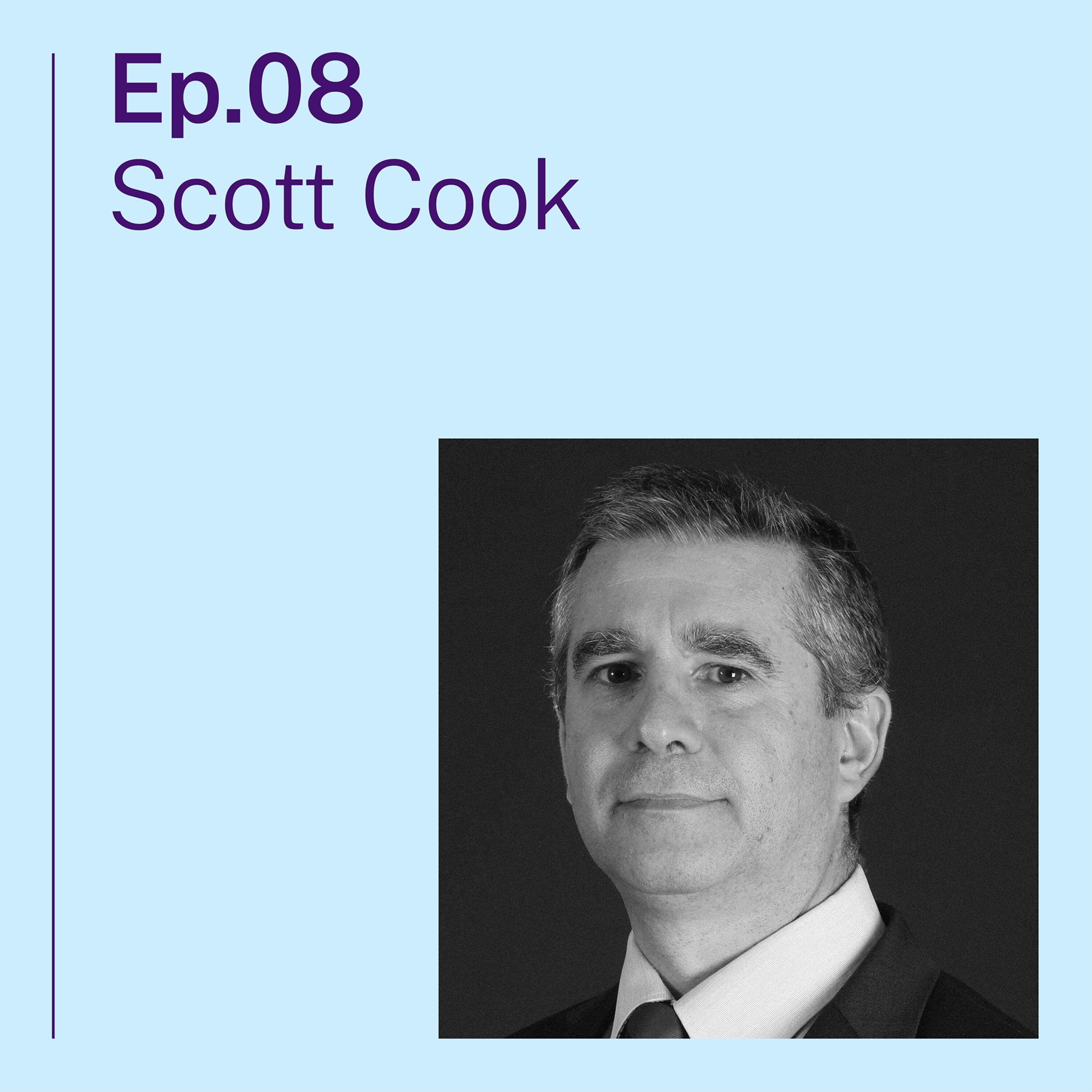
Police, sentencing and alternative pathways
Police prosecutors work in the Local Court and the Children’s Court across NSW, prosecuting a broad range of offences. But police also have options to keep people out of the court system in some situations. In this episode of Sentencing Explained, Peter is joined by Assistant Commissioner of the NSW Police State Intelligence Command, Scott Cook. They talk about a range of topics, including police powers in relation to juvenile offenders and the role of police prosecutors in criminal trials and sentencing. Hear why Assistant Commissioner Cook believes discretion is a crucial part of policing, and the importance of alternative pathways within the criminal justice system. Let us know what you think about the podcast in this quick survey: surveymonkey.com/r/sentencing_explained Check out the episode study guide on our website: sentencingcouncil.nsw.gov.au/podcastSee omnystudio.com/listener for privacy information.
Police, sentencing and alternative pathways
Police prosecutors work in the Local Court and the Children’s Court across NSW, prosecuting a broad range of offences. But police also have options to keep people out of the court system in some situations. In this episode of Sentencing Explained, Peter is joined by Assistant Commissioner of the NSW Police State Intelligence Command, Scott Cook. They talk about a range of topics, including police powers in relation to juvenile offenders and the role of police prosecutors in criminal trials and sentencing. Hear why Assistant Commissioner Cook believes discretion is a crucial part of policing, and the importance of alternative pathways within the criminal justice system. Let us know what you think about the podcast in this quick survey: surveymonkey.com/r/sentencing_explained Check out the episode study guide on our website: sentencingcouncil.nsw.gov.au/podcastSee omnystudio.com/listener for privacy information.
34:45
EP08 - S1
11 Dec 22

A look at Legal Aid and sentencing with Director Robert Hoyles
Legal Aid NSW represents some of the most disadvantaged people in our society when they are charged with crimes. Funded by the government, Legal Aid plays an important role in access to justice for people who otherwise could not afford legal representation. In this episode of Sentencing Explained, Peter delves into the role of Legal Aid in sentencing by speaking with its Director of Criminal Law, Robert Hoyles. Robert is responsible for Legal Aid’s criminal practice across NSW. Let us know what you think about the podcast in this quick survey: surveymonkey.com/r/sentencing_explained Check out the episode study guide on our website: sentencingcouncil.nsw.gov.au/podcastSee omnystudio.com/listener for privacy information.
A look at Legal Aid and sentencing with Director Robert Hoyles
Legal Aid NSW represents some of the most disadvantaged people in our society when they are charged with crimes. Funded by the government, Legal Aid plays an important role in access to justice for people who otherwise could not afford legal representation. In this episode of Sentencing Explained, Peter delves into the role of Legal Aid in sentencing by speaking with its Director of Criminal Law, Robert Hoyles. Robert is responsible for Legal Aid’s criminal practice across NSW. Let us know what you think about the podcast in this quick survey: surveymonkey.com/r/sentencing_explained Check out the episode study guide on our website: sentencingcouncil.nsw.gov.au/podcastSee omnystudio.com/listener for privacy information.
41:30
EP07 - S1
4 Dec 22

Determining a sentence in the District Court with Judge Donna Woodburne
Judge Donna Woodburne SC understands the importance of sentencing in the criminal justice process. She has worked in the District Court for 11 years. It’s here where most serious criminal matters are dealt with, with some exceptions (including murder). Sentencing can involve difficult decisions and, as Judge Woodburne says “every decision weighs very heavily.” In this episode, Peter and Judge Woodburne discuss mitigating and aggravating factors that a judge must balance when determining a sentence. They also look at the law in relation to parole, and special circumstances that can impact a sentencing decision. Listen in to hear how Judge Woodburne arrives at a sentence. Let us know what you think about the podcast in this quick survey: surveymonkey.com/r/sentencing_explained Check out the episode study guide on our website: sentencingcouncil.nsw.gov.au/podcastSee omnystudio.com/listener for privacy information.
Determining a sentence in the District Court with Judge Donna Woodburne
Judge Donna Woodburne SC understands the importance of sentencing in the criminal justice process. She has worked in the District Court for 11 years. It’s here where most serious criminal matters are dealt with, with some exceptions (including murder). Sentencing can involve difficult decisions and, as Judge Woodburne says “every decision weighs very heavily.” In this episode, Peter and Judge Woodburne discuss mitigating and aggravating factors that a judge must balance when determining a sentence. They also look at the law in relation to parole, and special circumstances that can impact a sentencing decision. Listen in to hear how Judge Woodburne arrives at a sentence. Let us know what you think about the podcast in this quick survey: surveymonkey.com/r/sentencing_explained Check out the episode study guide on our website: sentencingcouncil.nsw.gov.au/podcastSee omnystudio.com/listener for privacy information.
47:15
EP06 - S1
27 Nov 22
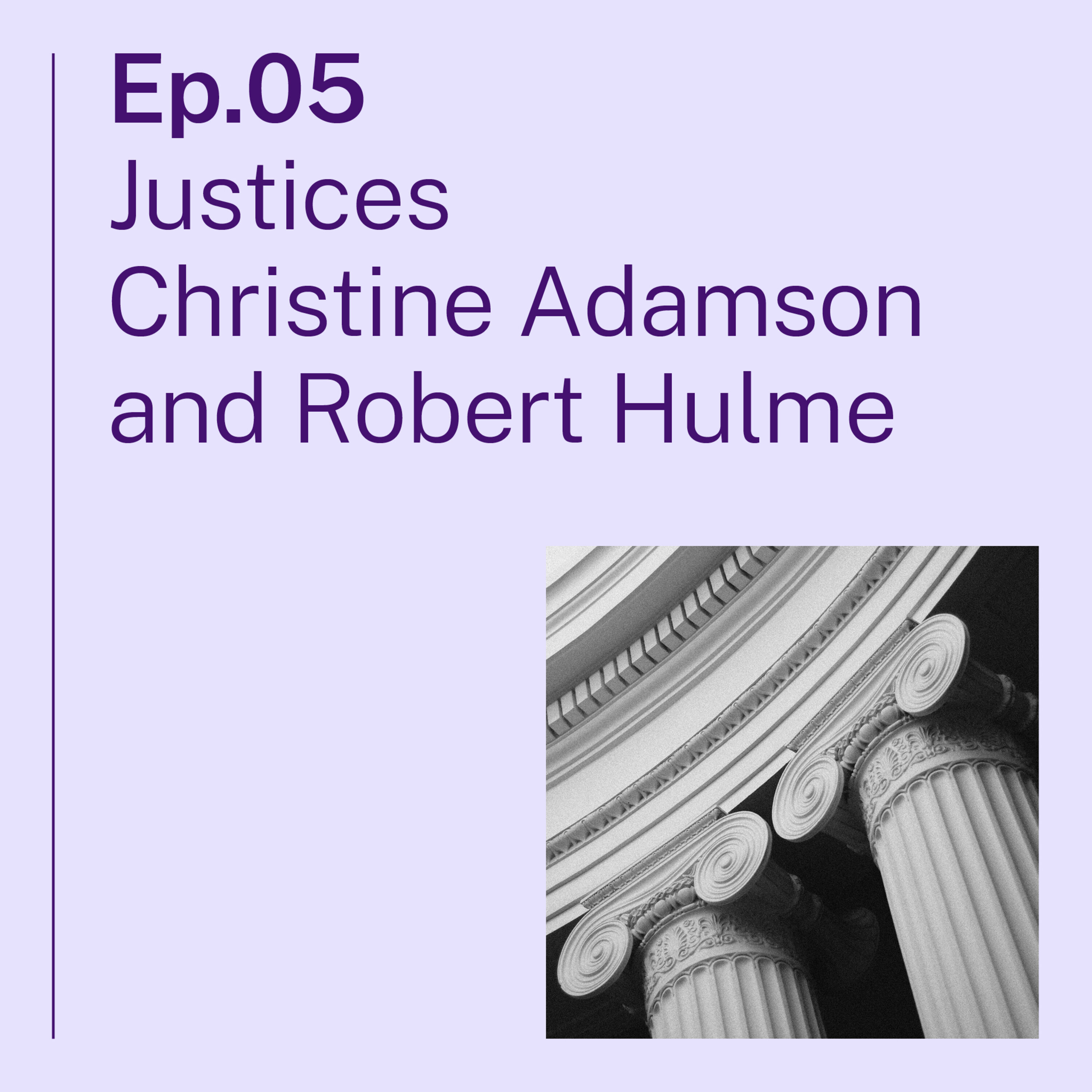
Stepping through sentencing with Supreme Court Judges
What factors do judges consider important when determining a sentence? Does it matter if the offender shows remorse or not? Exactly how long do judges sit and think about a sentence before delivering it? As we’ve learnt so far, sentencing is no easy task. It requires careful consideration and the decision weighs on everyone, including the judge. In this episode of Sentencing Explained, Peter speaks with Justices Christine Adamson and Robert Hulme to find out what it’s like to be a judge on the Supreme Court – one of the most senior positions in the NSW justice system. Let us know what you think and want to see next in this quick survey: surveymonkey.com/r/sentencing_explained Check out the episode study guide on our website: sentencingcouncil.nsw.gov.au/podcastSee omnystudio.com/listener for privacy information.
Stepping through sentencing with Supreme Court Judges
What factors do judges consider important when determining a sentence? Does it matter if the offender shows remorse or not? Exactly how long do judges sit and think about a sentence before delivering it? As we’ve learnt so far, sentencing is no easy task. It requires careful consideration and the decision weighs on everyone, including the judge. In this episode of Sentencing Explained, Peter speaks with Justices Christine Adamson and Robert Hulme to find out what it’s like to be a judge on the Supreme Court – one of the most senior positions in the NSW justice system. Let us know what you think and want to see next in this quick survey: surveymonkey.com/r/sentencing_explained Check out the episode study guide on our website: sentencingcouncil.nsw.gov.au/podcastSee omnystudio.com/listener for privacy information.
40:28
EP05 - S1
20 Nov 22
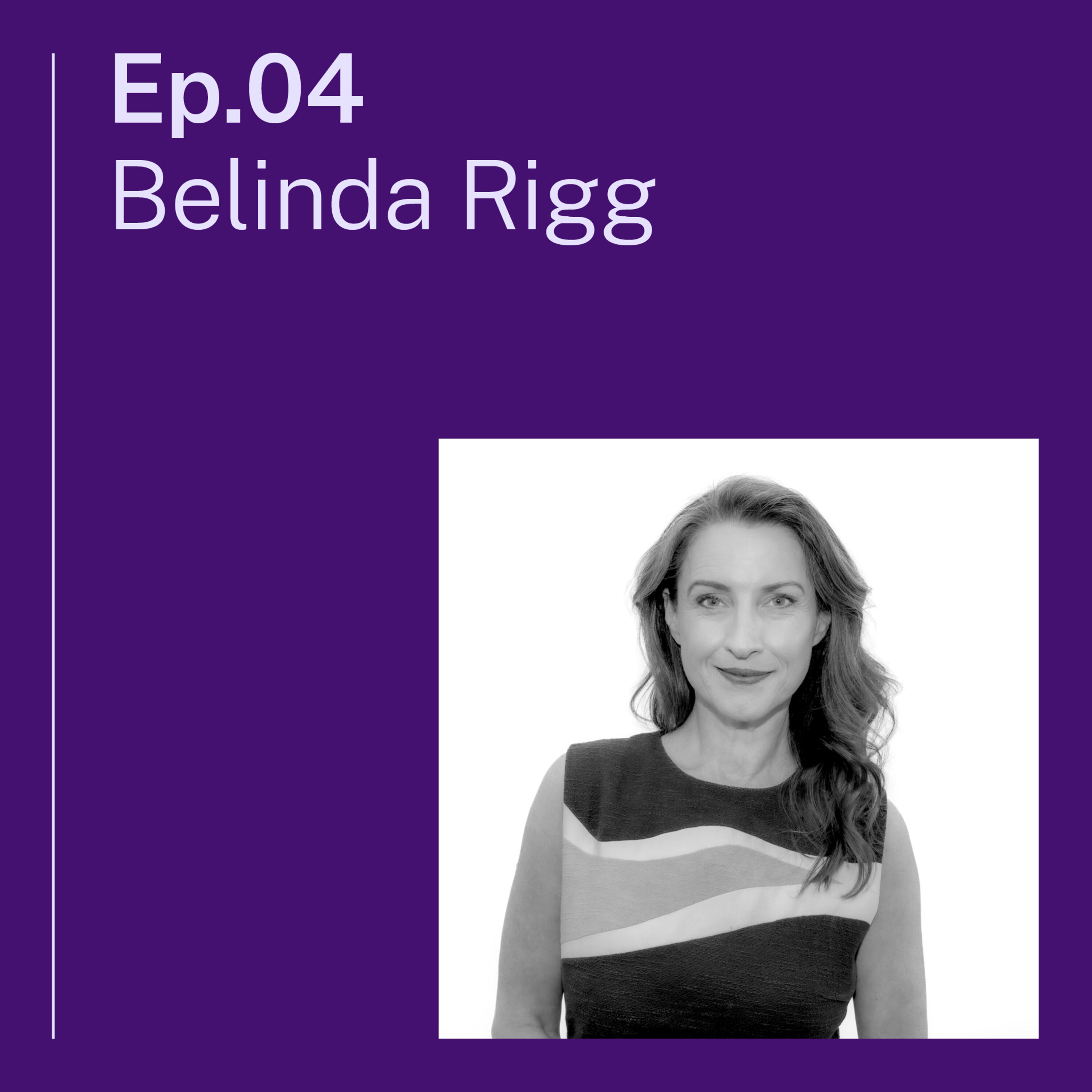
The role and duty of defence counsel: How do you argue a case for a serious offender?
How can you represent people who have committed heinous crimes? This is a question often asked of Public Defenders like Belinda Rigg SC. As a Public Defender, Belinda is a salaried barrister who works for people charged with serious criminal offences who have been granted legal aid. She defends some of the most vulnerable people in society. Unlike many other lawyers, Belinda didn’t spend any time as a solicitor. In fact, she was so motivated to get into the courtroom that, with the support of her mentors and colleagues, she went straight to the Bar. Listen in to find out why Belinda chooses to work in one of the most publicly scrutinised roles in criminal law. Let us know what you think about the podcast in this quick survey: surveymonkey.com/r/sentencing_explained Check out the episode study guide on our website: sentencingcouncil.nsw.gov.au/podcastSee omnystudio.com/listener for privacy information.
The role and duty of defence counsel: How do you argue a case for a serious offender?
How can you represent people who have committed heinous crimes? This is a question often asked of Public Defenders like Belinda Rigg SC. As a Public Defender, Belinda is a salaried barrister who works for people charged with serious criminal offences who have been granted legal aid. She defends some of the most vulnerable people in society. Unlike many other lawyers, Belinda didn’t spend any time as a solicitor. In fact, she was so motivated to get into the courtroom that, with the support of her mentors and colleagues, she went straight to the Bar. Listen in to find out why Belinda chooses to work in one of the most publicly scrutinised roles in criminal law. Let us know what you think about the podcast in this quick survey: surveymonkey.com/r/sentencing_explained Check out the episode study guide on our website: sentencingcouncil.nsw.gov.au/podcastSee omnystudio.com/listener for privacy information.
38:11
EP04 - S1
13 Nov 22
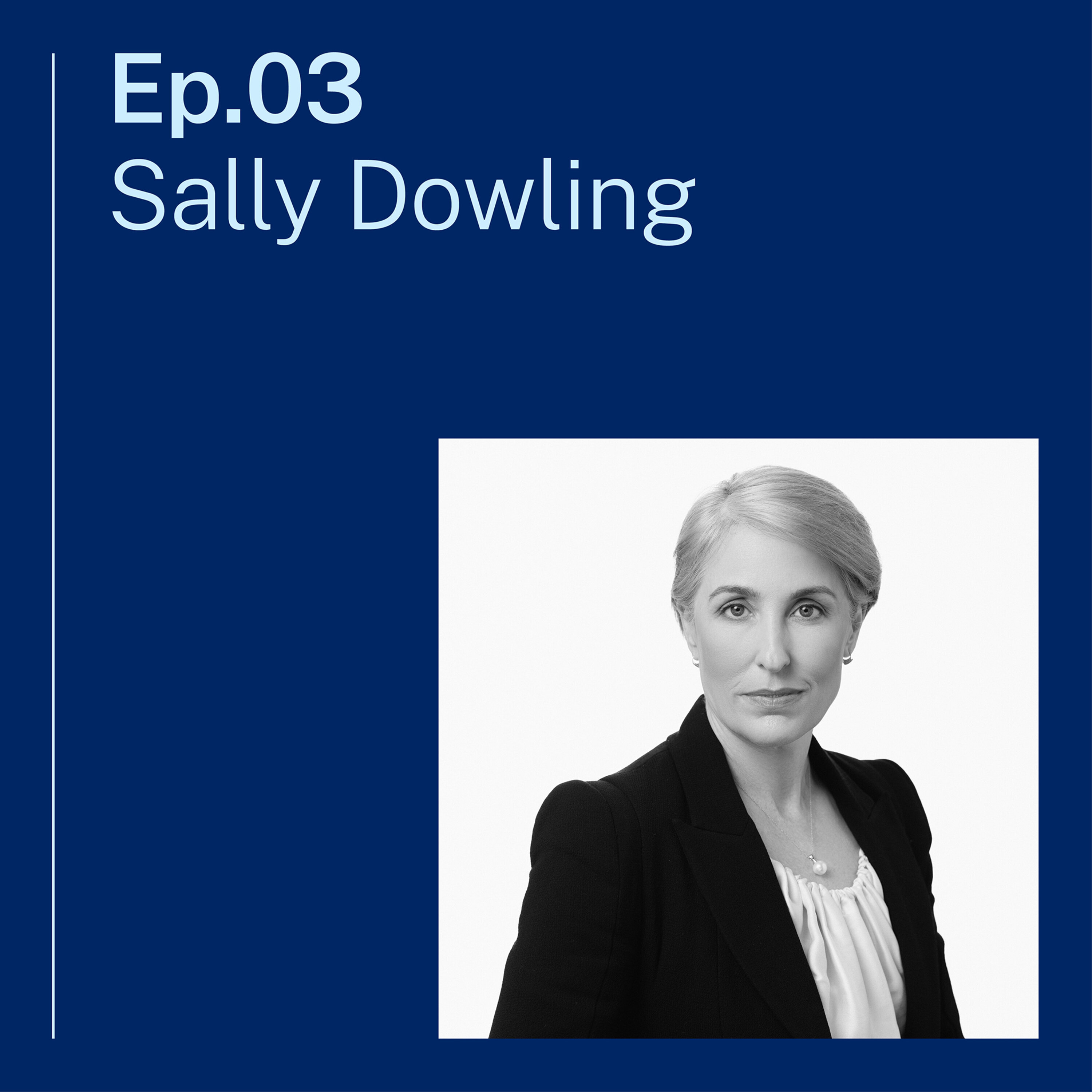
The role and duty of a prosecutor with Director Sally Dowling
Sally Dowling SC joined the bar 25 years ago and is the first woman to hold the position of NSW Director of Public Prosecutions. Sally’s team is responsible for the prosecution of serious crimes in the District Court and Supreme Court. Sally joins Peter in this week’s episode to discuss the demands of the role, the evolution of victims’ involvement in the sentencing process and the Crown’s capacity to appeal verdicts. They also look at some of the more special powers of the Crown, including its ability to take matters to the High Court. Listen in to learn more. Let us know what you think about the podcast in this quick survey: surveymonkey.com/r/sentencing_explained Check out the episode study guide on our website: sentencingcouncil.nsw.gov.au/podcastSee omnystudio.com/listener for privacy information.
The role and duty of a prosecutor with Director Sally Dowling
Sally Dowling SC joined the bar 25 years ago and is the first woman to hold the position of NSW Director of Public Prosecutions. Sally’s team is responsible for the prosecution of serious crimes in the District Court and Supreme Court. Sally joins Peter in this week’s episode to discuss the demands of the role, the evolution of victims’ involvement in the sentencing process and the Crown’s capacity to appeal verdicts. They also look at some of the more special powers of the Crown, including its ability to take matters to the High Court. Listen in to learn more. Let us know what you think about the podcast in this quick survey: surveymonkey.com/r/sentencing_explained Check out the episode study guide on our website: sentencingcouncil.nsw.gov.au/podcastSee omnystudio.com/listener for privacy information.
32:02
EP03 - S1
6 Nov 22
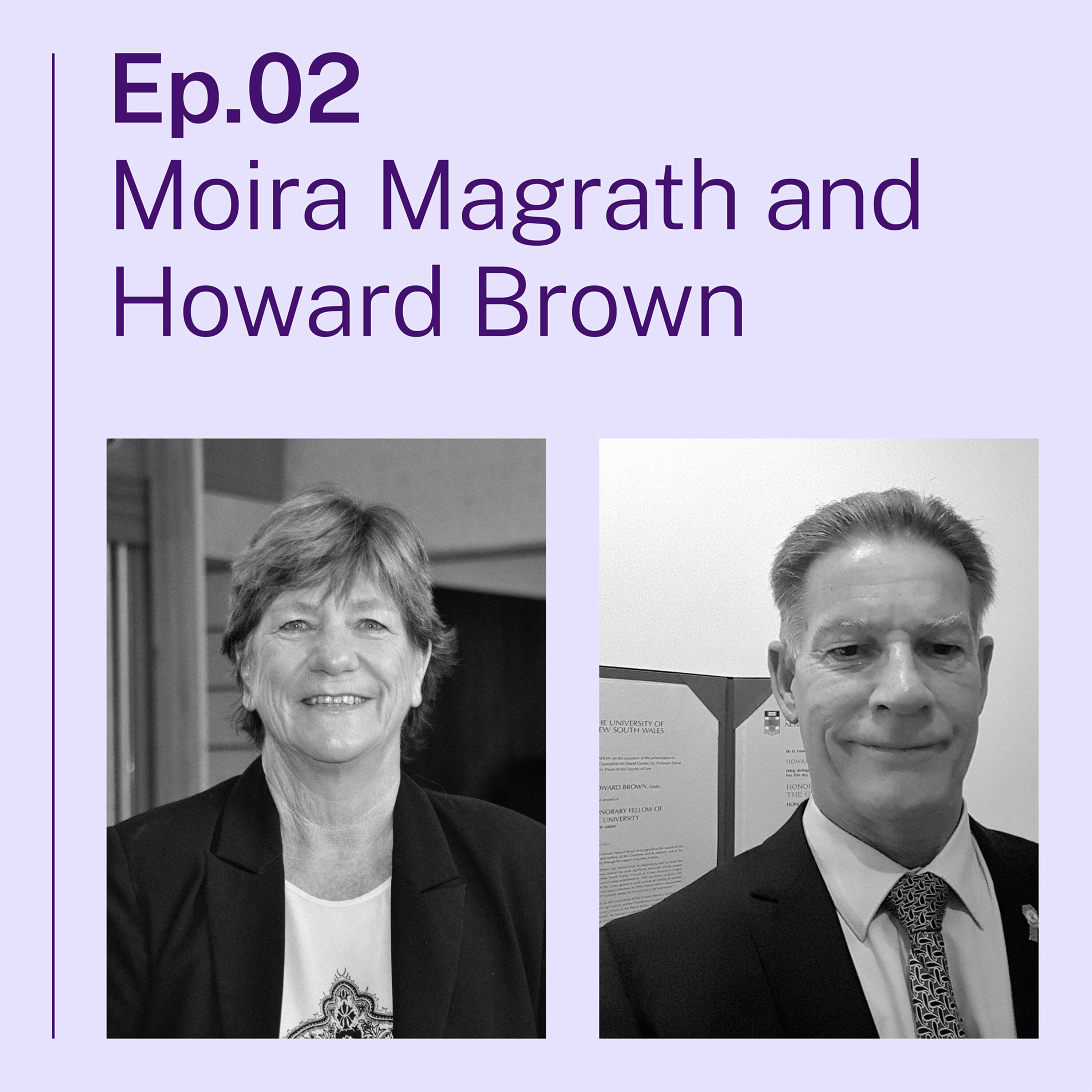
Perspectives on the Sentencing Council
Sentencing is a complex process. It has to consider the circumstances of the offender, and it needs a sense of justice to be felt by the victim and the wider community. How do you strike that balance?In this episode of Sentencing Explained, we talk with two former community members of the Sentencing Council, Howard Brown and Moira Magrath, about the challenges and benefits of being on the Council. They reflect on how their respective backgrounds in victims’ advocacy and corrective services helped shape their work with the Council. They also consider key issues in sentencing, such as the implications of mandatory sentencing and the need to avoid overregulation. Let us know what you think about the podcast in this quick survey: surveymonkey.com/r/sentencing_explained Check out the episode study guide on our website: sentencingcouncil.nsw.gov.au/podcastSee omnystudio.com/listener for privacy information.
Perspectives on the Sentencing Council
Sentencing is a complex process. It has to consider the circumstances of the offender, and it needs a sense of justice to be felt by the victim and the wider community. How do you strike that balance?In this episode of Sentencing Explained, we talk with two former community members of the Sentencing Council, Howard Brown and Moira Magrath, about the challenges and benefits of being on the Council. They reflect on how their respective backgrounds in victims’ advocacy and corrective services helped shape their work with the Council. They also consider key issues in sentencing, such as the implications of mandatory sentencing and the need to avoid overregulation. Let us know what you think about the podcast in this quick survey: surveymonkey.com/r/sentencing_explained Check out the episode study guide on our website: sentencingcouncil.nsw.gov.au/podcastSee omnystudio.com/listener for privacy information.
46:33
EP02 - S1
30 Oct 22
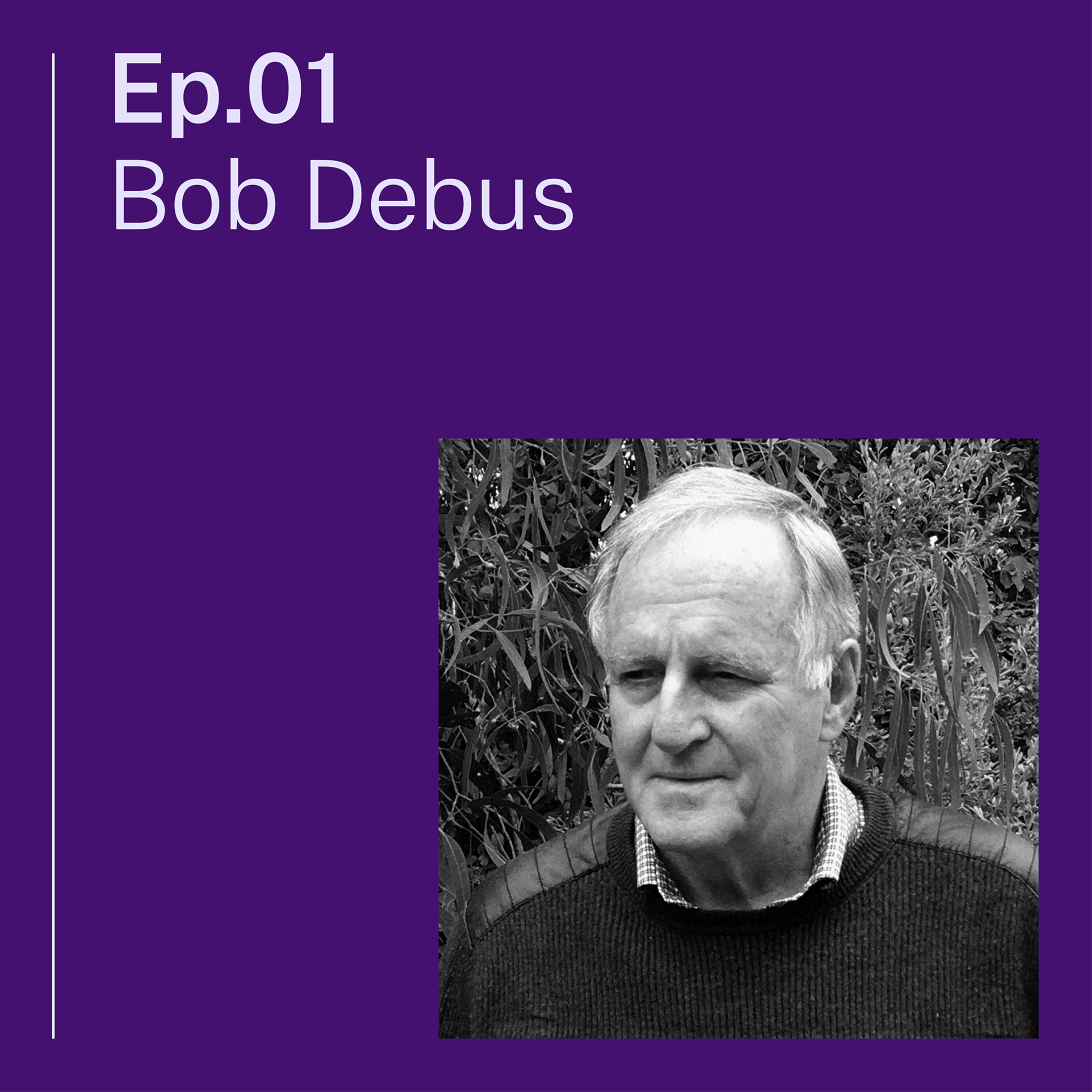
Insights into sentencing reform with the Hon Bob Debus AM
Welcome to the very first episode of Sentencing Explained! Join podcast host and Chair of the Sentencing Council, Peter McClellan AM KC, for a discussion with former NSW Attorney General, Bob Debus. They revisit the tense political climate that led to major reforms in sentencing law and the Council’s establishment in 2003. The public had an increasing interest in the sentencing process and a perception that the government and judges were soft on crime. Bob provides insight into how politicians were keen to shift this view. He unpacks how courts maintained judicial discretion while law-and-order politics – aka ‘the war on crime’ – was taking hold. Listen in to find out more. Let us know what you think about the podcast in this quick survey: surveymonkey.com/r/sentencing_explained Check out the episode study guide on our website: sentencingcouncil.nsw.gov.au/podcastSee omnystudio.com/listener for privacy information.
Insights into sentencing reform with the Hon Bob Debus AM
Welcome to the very first episode of Sentencing Explained! Join podcast host and Chair of the Sentencing Council, Peter McClellan AM KC, for a discussion with former NSW Attorney General, Bob Debus. They revisit the tense political climate that led to major reforms in sentencing law and the Council’s establishment in 2003. The public had an increasing interest in the sentencing process and a perception that the government and judges were soft on crime. Bob provides insight into how politicians were keen to shift this view. He unpacks how courts maintained judicial discretion while law-and-order politics – aka ‘the war on crime’ – was taking hold. Listen in to find out more. Let us know what you think about the podcast in this quick survey: surveymonkey.com/r/sentencing_explained Check out the episode study guide on our website: sentencingcouncil.nsw.gov.au/podcastSee omnystudio.com/listener for privacy information.
30:28
EP01 - S1
21 Oct 22
Episodes

